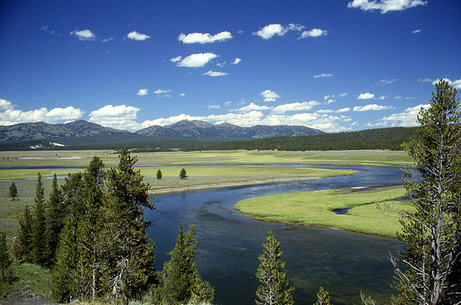
An internal symposium next week will hear about research on the history of migration, computer bugs, high altitude archaeology and new methods for meeting global food demand.
Four Gates Cambridge Scholars will address the need for new approaches to migration history, how to understand computer bugs, how to address global food demand and high altitude archaeology at an internal symposium next week.
The Scholars will present their research in these areas at the symposium, which takes place in the Gates Cambridge Scholars Common Room at 7pm on Monday.
Fabrice Langrognet [2014], who is doing a PhD in History, will address how the promise of more transnational approach to history has fallen short of its ambitions and why there is a need for new approaches in migration history. He will argue that microhistory can shed new light on what happened in some migratory settings in the past, can reveal unknown patterns in terms of identity construction and that it is legitimate to hyper-localise transnationalism. Fabrice’s research focuses on one particular tenement in a Paris suburb between the 1890s and the 1920s.
Kyndylan Nienhuis [2014], who is doing a PhD in Computer Science, will talk about his work on C/C++ concurrency. C/C++ are widely used computer programming languages, with concurrency being a recent addition that allows programmes to have multiple computations executing at the same time. Kyndylan says concurrency in C/C++ is not well understood and many programmes have counter intuitive behaviour which is a source of bugs. His presentation will seek to describe this concurrency and a tool he is making that programmers can use to explore all possible behaviours of their programmes.
Greg Reeves [2014], who is doing a PhD in Plant Sciences, will address the need for innovative and sustainable solutions to meet global food demands. Food crops require photosynthesis, but this process is hindered by lack of carbon dioxide. Research has found that about 4% of plants are able to overcome this limitation and enhance their photosynthetic efficiency with a genetically encoded carbon concentrating mechanism, termed C4 photosynthesis. Greg’s work focuses on how to transfer C4 photosynthesis into wheat and rice, which could increase existing yields by an estimated 50% and boost water- and nitrogen-use efficiency. He says: “This would be an incredible and sustainable solution to global food security and supply. This will be accomplished through a novel hybridisation method followed by classical plant breeding.”
Rachel Reckin [2014], who is doing a PhD in Archaeology, will describe her work on high altitude archaeology in the Central Rocky Mountains of the USA. She says: “For years, archaeologists in America’s Central Plains assumed that the Rocky Mountains were marginal to prehistoric life, but archaeological research at high altitudes is allowing us to reimagine alpine areas as central to indigenous life.”
Her research team has been formally documenting artefacts and archaeological sites ranging from 11,000 to 200 years old for the first time. She says high altitude archaeology can help to shed light on how the world adapted to previous periods of climate change. She states: “The discovery of artefacts melting from alpine ice worldwide is closely linked to anthropogenic climate change – many alpine ice patches are currently at their smallest extent of the Holocene, meaning that the artefacts they contain have not been exposed in thousands of years.”
Picture credit: “Yellowstone River in Hayden Valley” by Ed Austin/Herb Jones. Licensed by Wikimedia Commons.












